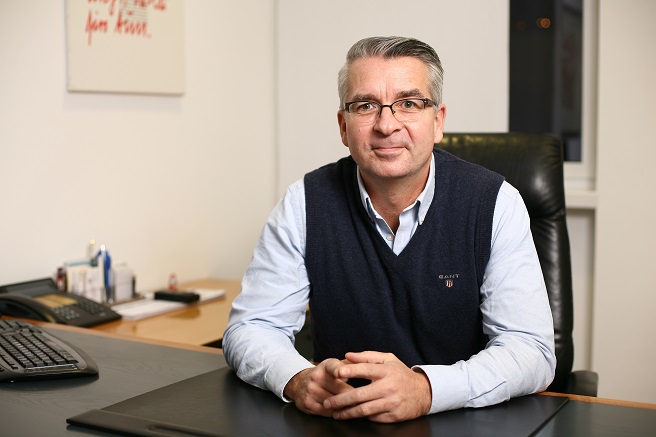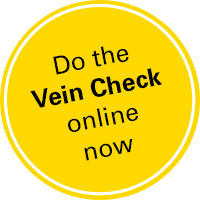Dr. Ingo Neßeler is an advocate of laser therapy and prepares his patients well for the procedure
 From electrician to vascular surgeon - Dr. Ingo Neßeler from Cologne has had an interesting career. He is now the head of a practice and has many interesting stories to tell. He can only recommend the laser procedure for varicose veins to everyone.
From electrician to vascular surgeon - Dr. Ingo Neßeler from Cologne has had an interesting career. He is now the head of a practice and has many interesting stories to tell. He can only recommend the laser procedure for varicose veins to everyone.
- Why did you decide on vascular surgery? What fascinates you about laser therapy?
After my training as an electrician, I did my military replacement service in the rescue service of the city of Cologne. Here I first came into contact with a medical profession and it was here that my desire to become a trauma surgeon grew. After I had passed my Abitur and successfully completed my studies, it turned out that in my first job as a physician, at that time still as an intern (AiP), surgery, in addition to accident and general surgery, also performed vascular surgery. Here I quickly discovered my passion for the filigree and technically very demanding procedures in vascular surgery. I then focused my further training on vascular surgery.
Laser therapy is also an intervention that meets these requirements.
- What are the advantages of laser therapy?
The advantages compared to the classic surgical method, vein stripping, are obvious. With the endoluminal laser therapy, a procedure has been developed that is much less stressful for the patient while maintaining the same effectiveness. This already starts with the type of anaesthesia, the laser therapy can be carried out excellently under local anaesthesia, the so-called tumescent anaesthesia. This means that a general anaesthetic is not necessary. The next advantage is that it is a completely incision-free procedure, which offers clear advantages in terms of the risk of infection and wound healing disruption. There are actually no infections at all with laser therapy. Also the lymphatic channels, which converge in the groin, can be spared safely. It is particularly interesting in the case of recurrences, where the previously operated groin has to be reopened with the classic surgical method. And the greatest advantage is the significantly faster convalescence. I have many patients who come to the operation appointment by bicycle and ride home again, sometimes even from the treatment table back to their desk.
- Have you ever had an exceptional case in your practice?
You know, of course there are also some critics of the laser procedure. A particularly stubborn advocate of the open surgery method even propagates at many specialist congresses and even on television the higher relapse rate in endoluminal procedures and justifies this by the longer remaining vein stump at the central orifice in the groin. Apart from the fact that this opinion is contrary to the international study opinion, these are topics that were perhaps current in the first catheter generation and we are talking about times that are more than 15 years ago. With modern catheters, as they are used today, it is possible to close the varicose vein right up to the orifice valve. In the end, I operated again on a patient who had undergone open pre-operation in his clinic, using the laser procedure, because there had been a recurrent varicosis with involvement of the inguinal distributor in the case of a long vein stump. As you can see, we all boil only with water and the quality of each procedure depends on the user.
- Does it happen that patients are afraid of the treatment? Are there any specific concerns that are often expressed to you about laser therapy? Can you reassure your patients and eliminate the concerns?
Of course, every person is concerned when it comes to an operation on their body. Some more, some less. But here too, one of the many advantages of the procedure comes into play. Because you are fully awake during the treatment, you can of course have a calming and distracting conversation with the patient and if it is really unpleasant at one point, you can of course make yourself heard immediately. A general anaesthetic due to general fear of surgery is really only necessary in exceptional cases. I estimate that I treat 99% of the cases with local anesthesia.
For further information please visit https://gefaessmedizin-nesseler.de/






